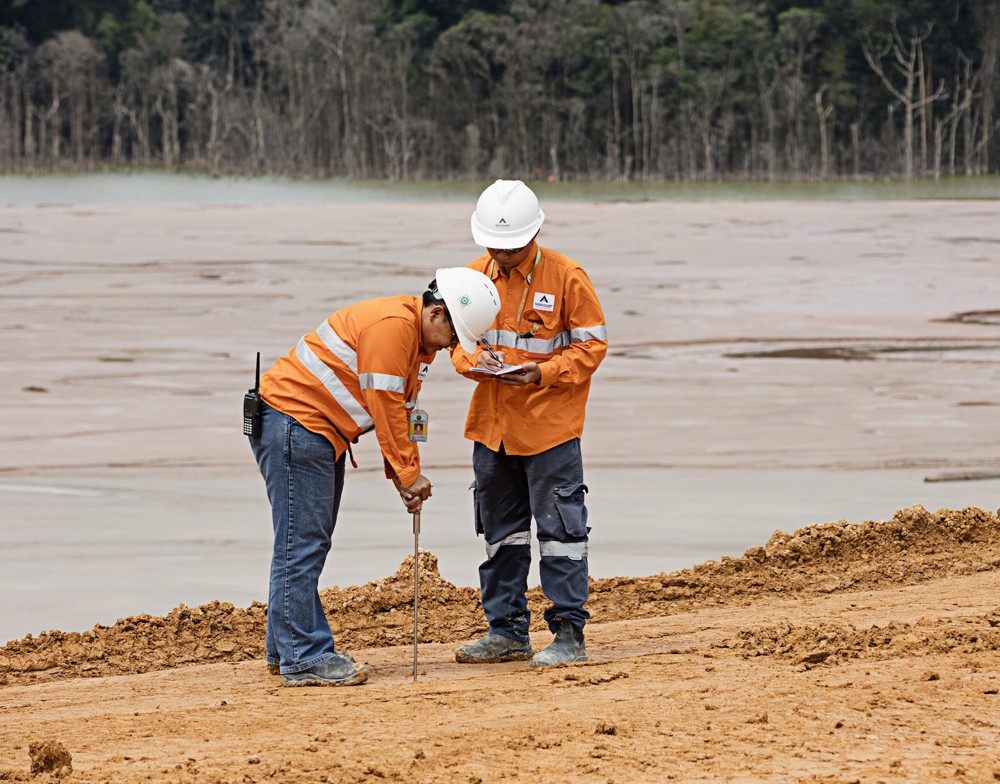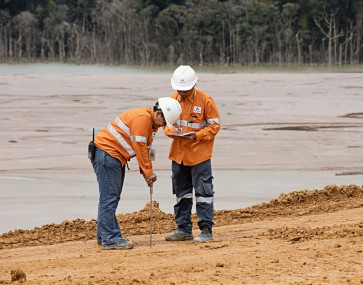Popular Reads
Top Results
Can't find what you're looking for?
View all search resultsPopular Reads
Top Results
Can't find what you're looking for?
View all search resultsActivists denounce dumping of mine tailings in water off Central Sulawesi
If approved, the waste from the nickel and cobalt metallurgy industry would be dumped at sea. According to Environmental and Forestry Minister Regulation No. 18/2018, deep sea tailings must be dumped outside of “sensitive areas” with standard levels of water quality, where the thermocline layer (where water temperatures rapidly decline) is at least 100 meters below the surface and where seabed canyons would allow the tailings to sink to depths of 200 m or more.
Change text size
Gift Premium Articles
to Anyone
E
nvironmental activists are furious about a plan by several mining companies in North Maluku and Central Sulawesi to dispose of their tailing waste in the sea nearby, saying it could pollute the environment and put local fisherfolk at risk.
Documents obtained by the Mining Advocacy Network (Jatam) show four companies are currently applying for permits for the deep sea tailing disposal, namely PT Trimegah Bangun Persada, operating on Obi Island, South Halmahera regency, North Maluku, and PT QMB New Energy Material, PT Sulawesi Cahaya Mineral and PT Huayue Nickel Cobalt, all three operating in Morowali regency, Central Sulawesi province.
PT Trimegah has obtained a location permit from the North Maluku governor, according to a decree dated July 2, 2019. The company is a subsidiary of PT Harita Jayaraya, part of the Harita Group.
Meanwhile, PT Sulawesi Cahaya Mineral is a part of the National Strategic Building Project of the Morowali Nickel Smelter worth a total of Rp 32.4 trillion. It sits on an area of 219.28 hectares shared with PT Indonesia Guang Ching Nickel and Stainless Steel Industry.
If approved, the waste from the nickel and cobalt metallurgy industry would be dumped into the sea. According to Environmental and Forestry Minister Regulation No. 18/2018, deep sea tailings must be dumped outside of “sensitive areas” with standard levels of water quality, where the thermocline layer (where water temperatures rapidly decline) is at least 100 meters below the surface and where seabed canyons would allow the tailings to sink to depths of 200 m or more.
Jatam campaigner Melky Nahar said that up to 14 nickel mining companies operated on the 200-hectare Obi Island. If the deep sea tailings disposal was approved it would put even more environmental strain on the island.
“This is a conscious effort to destroy Obi Island. [It will surely harm] local inhabitants who work as farmers and those working in the fishing sector,” Melky said at a discussion on Wednesday.


















